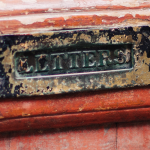The sky is so green today, greener than it’s been for a long time. The sun bakes the earth hot and hard beneath our bare feet, while reptiles scuttle through the dust. My mother stands straight-backed in the rose garden, oblivious, as if none of this is happening.
I watch her careful fingers prune and pinch. She’s elegant still, a long-handled basket slung over the crook of her arm; a wide-brimmed hat tied under her chin with a scarf like an old-time film star. She’s hung onto that hat as though her life depends on it.
My mother likes to think that she’s a creator, cultivator of miracles. She feels that someone who is able to maintain a rose garden of exquisite beauty amid such desolation is incapable of bad things. More specifically: she believes that this is what other people will see. Which other people? I want to bawl at the sickly sky.
Instead I clear my throat, a polite and delicate rasp.
‘Would you like some tea?’
My mother keeps her back to me and shakes her head. It’s just as well; there isn’t much left, despite our ugly, desperate hoarding.
I go inside.
*
The next morning I visit her at the same time. She is working on the coral-coloured floribunda, plucking off dry leaves with practised care until the sunburst petals are free to blaze unfettered. She bred those herself, and they’ve always bloomed each year, no matter the weather. They bloom no matter how many other things die around them: trees, marriages, civilizations. If our neighbours were still alive, they would talk amongst themselves about it, with hushed voices and pinched faces. They would whisper, perhaps, that it was a type of witchcraft.
I open my dry mouth and feel air rush in before daring to speak.
‘I found the letters.’
My mother doesn’t say anything, just keeps on clipping and snipping. Making things beautiful, as usual.
*
The following day the sky darkens. I go a step further and bring the sheaf of letters outside with me. The pages flap-snap in the breeze like gunshots, drowning out my voice as it falters across the space between us.
‘Here they are.’
A beat. More snipping.
I let frustration creep in.
‘Aren’t you going to say anything?’
Weeks of silence swell in my chest: the weight of the clandestine words. He won’t be around much longer, I promise. A lipstick kiss pressed into the paper, an obscene strawberry smear.
‘Can you at least look at me?’
When my mother finally turns around it’s more terrible than I could have imagined. Her eyes are jagged chips of jade, sparking with green flames; her face hollowed out from secret-keeping, melting like wax. Her mouth falls open at an angle and black liquid seeps from the corners.
‘Don’t ask… don’t ask about what you can never understand.’
Speaking seems to cost her dearly, since her chest rattles with the effort.
I want to run but stand firm.
‘Daddy didn’t really join the defence league, did he?’
More rattling.
‘What did you do to him?’
*
That night a storm rages, the uneasy humidity of the last few weeks finally breaking. The shutters bang and the roof tiles rattle, teeth in a jar; they’ve been falling for weeks now. There’s no point trying to sleep, and I stare out into the dark. Then a flicker of movement snicks over the grass. The outline is likely too large to be an animal, although I’m less sure these days. My eyes adjust and a sudden scud of wind rips the cloud from the moon, illuminating my mother. She staggers towards the rose garden. She is still wearing her straw hat, knotted strangle-tight under her chin. I wonder if it is the only thing keeping her from disintegrating entirely.
I stumble into the snarling air of the night, leaves whipping against my face. My mother is in her usual place but has deteriorated further, skin falling off her arms in great looping trails, one eye sliding out of its socket, lolling tongue-like down her cheek. She waves her secateurs and a primal dagger of fear twists into my chest. Blades flash wicked silver under the moon, years of work gone in an instant as the garden becomes a graveyard, a rubble of thorns, rose heads gathering in dull dead mounds at her feet. My mother howls and I cry out with her, from fear, from the release; from exhilaration at witnessing her lose control.
*
I wake in the morning, aching all over, grass cold and wet on my face. The sun is up but heavy in the sky. I know it won’t hold out much longer.
My mother is curled up, knees to chest like a child. Her eyes are still closed. She is beautiful again, skin fresh and dew-kissed: her face a bud opening after rainfall. I touch her shoulder, and her eyes snap open, clear and lucid.
She lurches into a sitting position and squeezes at the stem of the ruined rose she’s holding, so hard the thorns dig in and blood starts to seep slowly down her wrist. Without warning, she smashes what’s left of it into the ground. As she raises it up again, the last petal falls, a floating surrender. I tighten my grip on her shoulder.
‘It’s okay, Mama.’
She drops the stem and looks directly into the sun. The fallen petals settle in the dust. She lets me curl myself into her, and together we wait for the end to come.
…
Biography: Katie Oliver is a writer based on the west coast of Ireland, whose work has been nominated for the Pushcart Prize, Best Small Fictions and Best Microfiction. Her debut short story collection, I WANTED TO BE CLOSE TO YOU, is available to order from Fly on the Wall Press, and she is a first reader for Tiny Molecules. She can be found on Twitter and Instagram @katie_rose_o
…
Image: unsplash.com





